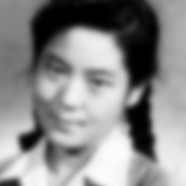 Dissertation Reviews has posted Dun Wang’s review of Meng Liansu‘s The Inferno Tango: Gender Politics and Modern Chinese Poetry, 1917-1980. Here’s how it begins:
Dissertation Reviews has posted Dun Wang’s review of Meng Liansu‘s The Inferno Tango: Gender Politics and Modern Chinese Poetry, 1917-1980. Here’s how it begins:
The Inferno Tango analyzes the gender politics of modern Chinese intellectuals through examining modern Chinese poetry from the 1910s to the 1980s. The author focuses on selected poets and closely examines their figurations of gender that refract the construction of modern subjectivity in phases of China’s modernization. To this end, the author combines close readings of poetry with detailed analyses of the larger historical contexts, which include the poets’ biographical narratives and archival and first-hand materials that are excavated by other scholars and the author. Meng’s research focuses mainly on Guo Moruo, Wen Yiduo, and Chen Jingrong among the earlier generations, and more recent poets such as Bei Dao, Mang Ke, and Shu Ting who emerged from the literary activism of Today! in the late 1970s. The title’s central phrase, “the inferno tango,” is taken from female Chinese poet Chen Jingrong’s 1946 poem “Diyu de tangewu” (“The Inferno Tango”), vividly capturing the discursive tension between love and violence. Through sensitive and close readings, Meng fruitfully delineates manifold factors that have contributed to the Chinese poets’ construction of their gendered subjectivities in times of profound national crisis. Meng argues that the masculinity of the poetic canon in modern China was “naturalized and perpetuated by the discourses of love, marriage, nationalism, revolution and industrial progress as well as by the indigenous literati tradition” (p. ix).
Click here for the whole review.
 The new issue of Chinese Literature Today features new translations by Andrea Lingenfelter and Liansu Meng 孟莲素 of poetry by Chen Jingrong 陈敬容:
The new issue of Chinese Literature Today features new translations by Andrea Lingenfelter and Liansu Meng 孟莲素 of poetry by Chen Jingrong 陈敬容:
 Modern Chinese Literature & Culture
Modern Chinese Literature & Culture  Dissertation Reviews
Dissertation Reviews